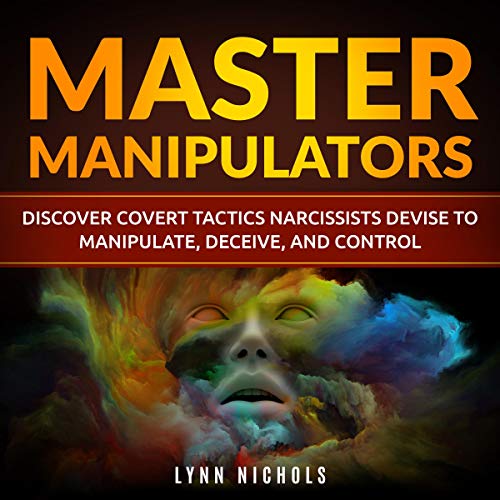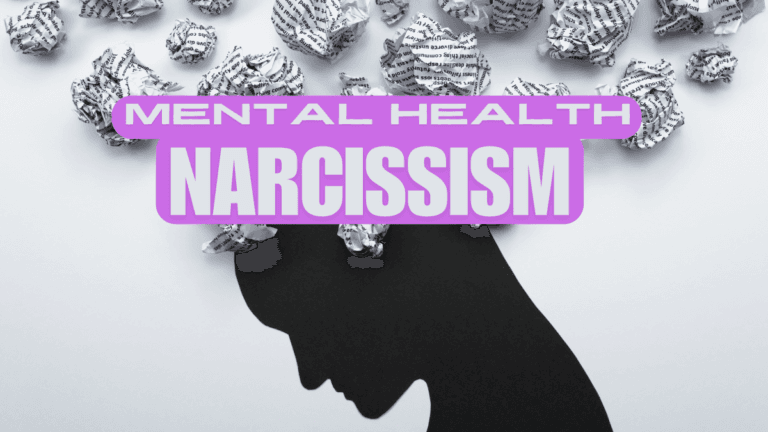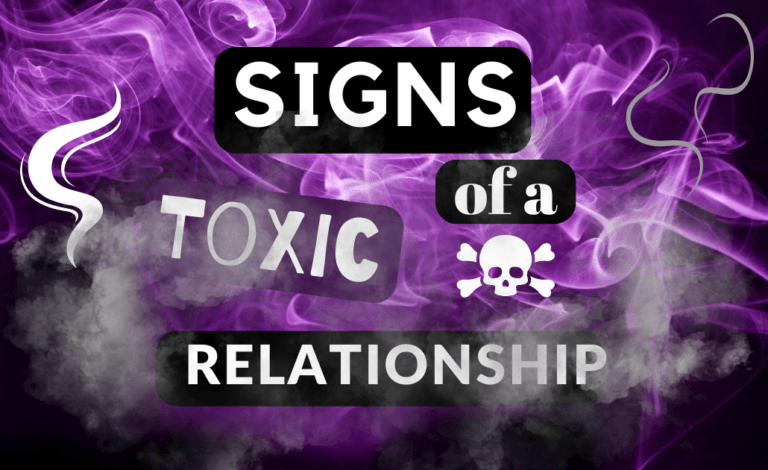How Society Mirrors the Narcissist’s Playbook
The following is a brief transcript of the episode from the Narcissistic Abuse Recovery Podcast.
Podcast: Narcissistic Abuse Recovery Podcast
Host: Lynn Nichols
Follow our work beyond the podcast: We publish essays and insights on Medium through our Moving Forward with Hope publication, and you can also find additional content and community updates on our Substack. Join us there to go deeper, connect with others, and support the movement.
Lynn is a heartfelt advocate for personal growth and empowerment, and writes with raw insight on navigating narcissistic abuse, toxic relationships, and sometimes the societal challenges tied to the patriarchy. With a deeply experiential approach, her stories shed light on the emotional complexities of breaking free from toxic patterns and reclaiming one’s voice. L.N. offers fresh perspectives on gender dynamics, self-worth, and healing, encouraging readers to rebuild from within and revolutionize their relationships.
Lynn is also a trauma-informed narcissistic abuse recovery coach and podcast host. She creates videos on her YouTube channel to bring the message of healing and recovery. Learn more on her website here.
Societal Gaslighting
Welcome back to the Narcissistic Abuse Recovery Podcast. I’m Lynn, your host.
Imagine you’re about to buy something online. You’ve been researching it for days. You finally find it, and right there on the screen: ‘Only 3 left in stock. 15 people viewing this right now. Sale ends at midnight.’ Your heart rate increases. You need to decide now. And suddenly you’re not thinking about whether you actually want this thing. You’re just thinking about not losing it. That feeling? That’s not accident. That’s manipulation. And it’s the exact same tactic your abusive ex used to keep you off balance and compliant.
Before we jump in, I want to tell you what we’re covering today. In this episode, we’re going to talk about three specific manipulation tactics that show up everywhere once you know how to spot them. We’re not going to rush through ten different topics. Instead, we’re going deep on just three: gaslighting at scale, love bombing as marketing, and artificial scarcity.
Now, you might be wondering why we’re connecting personal abuse tactics to things like corporate marketing and political campaigns. Here’s why. The manipulation playbook doesn’t change just because the manipulator gets bigger. Whether it’s one person or an entire institution, the tactics work the same way because they exploit the same human vulnerabilities.
And here’s what makes this important. Once you’ve survived narcissistic abuse, you develop this radar. This ability to feel when something’s off, even if you can’t immediately explain why. That’s not paranoia. That’s pattern recognition. And today, we’re going to sharpen that skill together.
So get comfortable. Maybe grab a coffee or tea. Because we’re going to take our time with this.
Disclaimer: A quick note before we start. Today’s episode is educational in nature, focusing on psychological manipulation patterns. We’ll be looking at examples from various industries and systems to illustrate these tactics. These examples are chosen for their clarity in demonstrating manipulation techniques, not to single out any particular company or sector. Everyone’s experience will be different, and you’re encouraged to think critically about the patterns we discuss and how they show up in your own life.
Related: Weaponized Empathy
Let’s start with gaslighting. If you’ve been in a relationship with a narcissist, you know exactly what this feels like.
They tell you something didn’t happen when you know it did. They tell you you’re too sensitive when you’re having a normal reaction to abnormal behavior. They rewrite history right in front of you. And the goal? To make you doubt your own perception of reality.
When you can’t trust your own memory, your own senses, your own judgment… you become dependent on their version of reality. And that’s exactly where they want you.
Now. Let me ask you something.
Have you ever had an experience where a company, or a government, or an institution told you something that completely contradicted what you knew to be true? And not just a mistake, but a deliberate rewriting of facts?
That’s institutional gaslighting. And it’s everywhere.
Let’s look at some real examples. Because this isn’t theoretical. This is documented, proven, historical fact.
The tobacco industry. For decades, cigarette companies had scientists on their payroll who knew, absolutely knew, that cigarettes caused cancer. They had the research. They had the data. They knew their product was killing people.
And what did they do? They spent millions of dollars convincing the public that the science was unclear. That more research was needed. That people who got sick probably had other health problems. They funded their own studies designed to create doubt. They attacked the credibility of independent researchers.
Does that sound familiar? “It didn’t happen. And if it did, it wasn’t that bad. And if it was bad, it’s probably your fault anyway.”
Shrinkflation/Product Downsizing “Consumer product companies have done this with shrinkflation. They make packages smaller but keep the same price. Your ice cream container that used to be a half gallon is now 1.5 quarts. Your bag of chips has more air and fewer chips. Your candy bar is thinner.
And when consumers notice and complain, what do companies say? They tell you the package is the same size it’s always been. They say you’re misremembering. They redesign packaging to make it look the same volume when it’s not. They blame supply chain issues or ingredient costs, while their profit margins actually increase.
You know something changed. You can see it. But they tell you you’re wrong. That nothing’s different. That you’re just imagining it or being unreasonable for expecting the same amount of product for your money.
They’re literally making you doubt your own perception of physical reality. Making you question whether that package really was bigger before.
That’s gaslighting.
The food industry does this with addictive ingredients. They engineer products to be as addictive as possible. They have scientists working specifically on what they call the “bliss point,” the exact combination of sugar, salt, and fat that makes you unable to stop eating.
Then they deny those products are designed to be addictive. They say you just need more willpower. They blame you for eating too much of the thing they deliberately made impossible to resist.
“Our product is safe. If you got sick, it must be something else. You’re probably just predisposed to obesity. It’s your lack of self-control.”
See the pattern?
So why does all of this work? Why is institutional gaslighting so effective?
Because humans are wired to trust authority. We want to believe that companies aren’t deliberately poisoning us. That governments aren’t systematically lying to us. That institutions have our best interests at heart.
And when those authorities tell us our perception is wrong, many people will doubt themselves before they doubt the institution. Especially when the institution has more resources, more credibility, more power to shape the narrative.
Just like with a narcissistic partner. You want to believe they love you. You want to believe they have good intentions. So when they tell you you’re remembering wrong, you doubt yourself. Because doubting them means accepting something scary: that they’re deliberately manipulating you.
The same thing happens with institutions. Doubting them means accepting something terrifying: that the systems we depend on are deliberately deceiving us.
And what’s the impact of all this gaslighting?
Exhaustion. Confusion. Self-doubt. People stop trusting their own judgment. They stop speaking up because they’re afraid they’re wrong, or overreacting, or being too sensitive.
And when people are exhausted and confused and doubting themselves, they’re much easier to control. They don’t have the energy to fight back. They don’t trust themselves enough to resist. They accept the version of reality they’re being sold because it’s too exhausting to keep questioning it.
That’s the goal. That’s always the goal. Make you too tired and too confused to see clearly.
The real-world consequences of this are massive. People die because they trusted tobacco companies. The planet is heating because people were made to doubt climate science. Communities suffer because people were gaslit into thinking systemic problems are personal failures.
And it’s not just physical consequences. It’s psychological. When you can’t trust institutions to tell the truth, when you can’t even agree on what facts are, society starts to fracture. People retreat into their own bubbles. Everyone becomes suspicious of everything. And that breakdown of shared reality? That’s dangerous.
Gaslighting at a personal level destroys relationships. Gaslighting at a societal level destroys democracy, trust, and the possibility of collective action.
Love Bombing as Marketing
Alright. Let’s shift gears and talk about love bombing.
If you’ve experienced this in a relationship, you know how powerful it is. The narcissist comes on strong. Intense attention. Excessive compliments. Constant contact. They move fast. They make you feel like you’ve found your soulmate, your perfect match, the person who finally gets you.
It’s intoxicating. It’s overwhelming. And it’s deliberate.
The goal of love bombing is to create a peak emotional experience so intense that you’ll spend the rest of the relationship chasing that feeling. They’re literally hacking your brain’s reward system. They’re creating an addiction. To them.
Because once you’re hooked on that feeling, once you’ve experienced that high, you’ll tolerate almost anything to get it back. The abuse, the manipulation, the cruelty. You’ll endure it because you remember how good it felt in the beginning. And you keep hoping it’ll go back to that.
That’s the trap.
Now. Look at how brands market to us. Really look at it.
You’re not a customer. You’re family. You’re part of a tribe. A community. A movement. They’re not selling you a product. They’re selling you an identity. A belonging. A version of yourself that you’ll finally be happy with if you just buy this thing.
Does that sound familiar?
Apple doesn’t sell computers and phones. They sell membership in a creative, innovative, think different club. When you buy an Apple product, you’re not just buying technology. You’re buying an identity as someone who values design, creativity, simplicity. You’re joining a tribe.
Luxury brands don’t sell handbags. They sell status. Exclusivity. The feeling of being special, being chosen, being part of an elite group. The product almost doesn’t matter. What matters is what it signals about who you are.
Fitness companies don’t sell exercise. They sell transformation. They sell the promise of becoming a completely different person. A better person. And more than that, they sell belonging to a fitness community. Peloton isn’t just selling you a bike. They’re selling you a tribe of people who get it, who are on the same journey, who will validate your worth.
Coffee shops. They’re not selling caffeine. They’re selling a lifestyle. A morning ritual. A third place between home and work. They’re selling the identity of being someone who appreciates artisanal quality, who’s part of the slow living movement, who values the aesthetic of a carefully crafted latte.
Tune in to hear the rest of the podcast scheduled in November. Subscribe now and join us wherever you download and listen to your podcasts.
🔗 Additional Healing Resources & Support: 👉 movingforwardafterabuse.com
📚 **Books by Lynn** 👉 Go Here
🎓 **Online Course: Narcissistic Abuse Recovery** 👉 Start the Course
🧘♀️ **Somatic Healing Audio Sessions** 👉 Listen Now
📥 **Downloadables: Ebooks, Worksheets & More** 👉 Visit the Store
💬 **Join the Exclusive Community on Supercast** 👉 Become a Member
🎁 **Support the Show** 👉 Tip Jar
📱 **Connect on Social Media** 👉 Visit our Linktree
⭐⭐⭐⭐⭐ **Leave a Review**
Related: Episode 102 – Emotionally Absent
Read More:
Freyd, J.J. (1997-2025). DARVO Research and Theory. Jennifer Joy Freyd, PhD, Center for Institutional Courage.
https://www.jjfreyd.com/darvo
Dr. Jennifer Freyd, Professor Emerit of Psychology at the University of Oregon and founder of the Center for Institutional Courage, introduced the concept of DARVO (Deny, Attack, Reverse Victim and Offender) in 1997. Her peer-reviewed research published in the Journal of Aggression, Maltreatment, & Trauma (2020) found that when perpetrators use DARVO tactics, observers are more likely to see perpetrators as less responsible and victims as more responsible for abuse. The research also demonstrated that education about DARVO significantly reduces its manipulative effectiveness.
Horsley, R.R., Osborne, M., Norman, C., & Wells, T. (2016). Why are Some Games More Addictive than Others: The Effects of Timing and Payoff on Perseverance in a Slot Machine Game.Frontiers in Psychology / PMC.
https://pmc.ncbi.nlm.nih.gov/articles/PMC4735408/
This peer-reviewed study published in Frontiers in Psychology examined how intermittent reinforcement and variable reward schedules create addictive patterns in gambling behavior. The research demonstrates that unpredictable rewards (intermittent reinforcement) produce stronger behavioral conditioning and greater resistance to extinction than consistent rewards, explaining why slot machines and similar variable-ratio reward systems are particularly effective at maintaining compulsive behavior.
Behavioral Economics Institute (2024). Scarcity Heuristic.BehavioralEconomics.com – The BE Hub.
https://www.behavioraleconomics.com/resources/mini-encyclopedia-of-be/scarcity-heuristic/
This authoritative resource from the Behavioral Economics Institute documents how scarcity appeals in marketing create perceived value and drive purchasing decisions. Research cited shows that consumers are willing to pay up to 50% more for products advertised as scarce or limited edition, demonstrating how artificial scarcity manipulates consumer behavior by triggering fear of missing out and competitive instincts.








